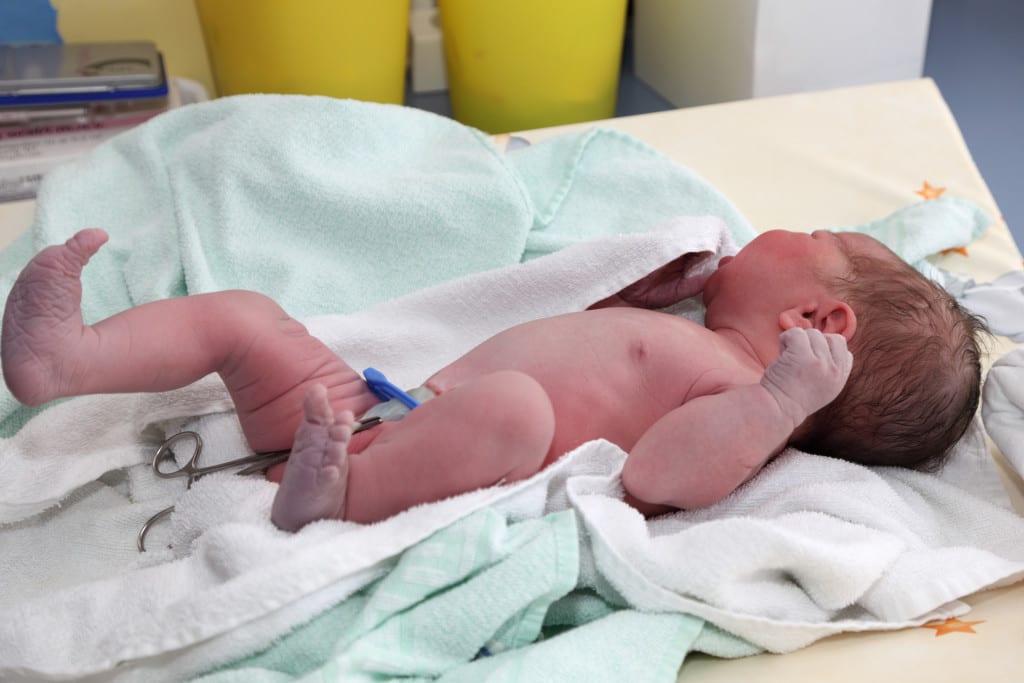
Addiction is hard. Ask anyone who has ever battled to regain their freedom from an addiction, and they will tell you it is one of the hardest wars you will ever fight. Even when you’ve won, you’re still not really safe. But those whose struggle is in some ways hardest are those who never chose the drug to begin with – babies. Current statistics show that there is an alarming increase in the number of babies who are born addicted to drugs in Michigan.
According to statistics provided by Children’s Protective Services (CPS), the number of babies born suffering from withdrawal symptoms due to their mother’s drug addiction has increased vastly. Some studies claim a three fold increase across the nation, others say five. Either way, the numbers are frightening.
In 2008, the number of Michigan infants born addicted to drugs was 1,379. By 2013, it had risen to 3,217. Research conducted by University of Michigan physicians show that, in the United States, every hour a baby is born who will battle opiate addiction. However, because Michigan Child Protective Services policy does not define a fetus as a child, it is not legally considered to be child abuse, or a situation within the authority of CPS, when a mother is using drugs while pregnant.
That, however, changes as soon as the baby is born. Hospital workers, who are considered to be mandated reporters, are required to report to DHHS any positive results from tests that show evidence of illegal or controlled substances in a newborn’s system. In fact, even if there are no test results to prove the presence of drugs, a mandated reporter would be required to contact DHS for a newborn exhibiting the symptoms of withdrawal.
In the event test results prove that the baby’s body contains traces of alcohol or drugs, CPS typically opens an investigation to determine the severity of the baby’s exposure, and whether or not they are at risk of further harm in their mother’s care. However, it is important to note that a landmark case last year changed the way these situations are handled.
30-year-old Melissa Lee Jones, a mother who was convicted of child abuse for using drugs during her pregnancy, challenged the ruling on the grounds that the definition of ‘child’ in Michigan law does not include an unborn fetus. Based on this legal definition of child, the Court of Appeals agreed with her, and Jones’ sentence was overturned.
A study published by The Journal of the American Medical Association explains that it takes just over two weeks for a newborn to fully withdraw from painkiller dependency. Additionally, that period of time is very hard on the baby’s body, and includes such symptoms as vomiting, seizures, sweating and difficulty feeding and sleeping. However, while these short-term symptoms are very difficult, it is the long term consequences that may be even more challenging.
Data collected about the long term struggles for babies born with addictions is not completely conclusive. On the whole, however, physicians agree that many of the children born with substance dependencies are more likely to be faced with developmental, medical, emotional, and behavioral concerns as they grow up.
Drug addictions in newborns can be very difficult to handle, for the child itself, the foster parents sometimes helping to care for the child, and the medical staff tasked with assisting the healing process. What is equally hard is the legal and personal ramifications that a parent can face in the wake of a baby born with a drug addiction.
If you or a loved one are facing the pending loss of your children due to allegations of drug abuse during pregnancy, contact us immediately at 866 346 5879. The skilled defense attorneys at The Kronzek Firm have spent decades defending Michigan parents against CPS invasions of their families and privacy. We can help you too.
